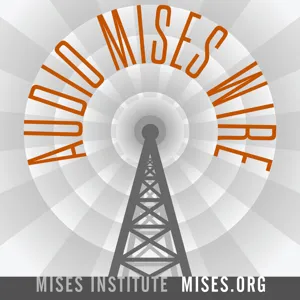Podcast Summary
Intellectual Property Law, Monopoly Privileges: Intellectual property law's roots in monopoly privileges date back to the colonial period and have continued to prioritize corporate interests over public domain, as seen in the case of Steamboat Willy's transition into public domain.
The release of Steamboat Willy into the public domain on January 1, 2024, highlights the issue of political rent seeking and corporate protectionism in intellectual property law. This concept, which can be traced back to the colonial period, has its roots in the granting of monopoly privileges to promote sciences and useful arts. However, as seen with the early lobbying efforts of American authors like Noah Webster, this legislation was not solely based on liberal principles but rather personal interests. The history of intellectual property law is one of monopoly privileges, and the term monopoly originally meant exclusive rights granted by the state. The Steamboat Willy example showcases how this tradition continues, with companies and individuals seeking to maintain control over their creations long after their initial value has been extracted.
Monopolies and Creativity: Monopolies, granted by the state, can limit competition, stifle creativity, and result in subpar outcomes when a single entity holds exclusive rights
Monopolies, granted by the state, limit competition by prohibiting entry into a specific area of production for others. These privileges are valuable, as seen with the East India Company's exclusive trading rights, which led to political rent-seeking and eventual state intervention. Disney, too, benefits from this system, with its copyrighted characters like Mickey Mouse generating billions in revenue. However, monopolies can stifle creativity and innovation, as seen with Amazon's acquisition of the Lord of the Rings IP, resulting in subpar adaptations. This discussion highlights the potential drawbacks of monopolies, including the restriction of creative expression and the potential for subpar outcomes when a single entity holds exclusive rights.
Intellectual property laws: Intellectual property laws can hinder competition and creativity, leading to monopolies and mediocre content in the entertainment industry. Encouraging open competition and well-defined private property rights can foster quality and innovation.
Intellectual property laws, particularly in the entertainment industry, can hinder competition and creativity, leading to mediocre content and monopolies. The Star Wars sequel trilogy, produced by Disney, is an infamous example of this phenomenon. Disney, as the intellectual property holder, has little incentive to produce high-quality content since they have a monopoly on the Star Wars universe. This situation stifles innovation and prevents fans and smaller creators from earning revenue from their ideas. The government's protection of intellectual property effectively shields corporations from market pressures that would force them to improve their products. Instead, we should encourage open competition and well-defined private property rights to foster quality and innovation. By breaking down monopolies and fostering a competitive environment, we can ensure that political expediency doesn't overshadow the creation of truly exceptional content. For more insights on this topic, visit Mises.org.

